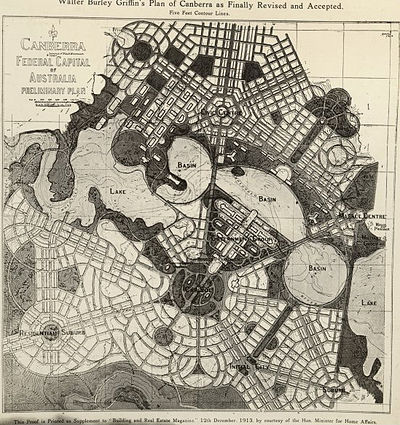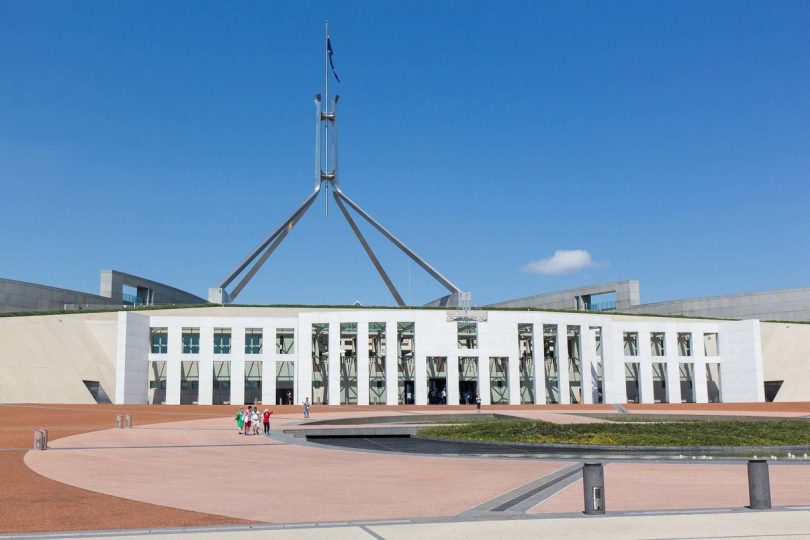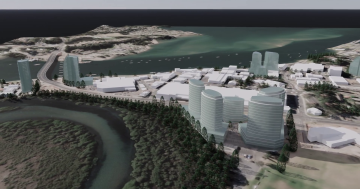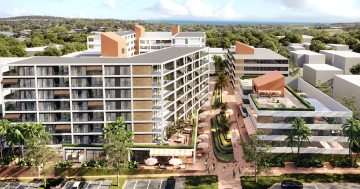
Walter Burley Griffin’s final version of the Canberra plan, 1913. File photos.
It’s been ten years since the first moves were made to place Canberra on the National Heritage list.
For many locals, the first reaction would still be to ask how on earth you could list an entire city? But planning expert Ed Wensing says that the need has never been more urgent, as the current application to list runs out in a few days’ time, on June 30, and the city’s development reaches breakneck speed.
The request to list has been repeatedly delayed and postponed as one Federal minister after another has punted the decision to the sidelines. Now Mr Wensing has written to environment minister Sussan Ley asking her for a final decision and reminding her that if she fails to list the city, she must provide her reasons.
The intent is not to declare every single building as untouchable, but rather to protect the character of the city as a whole. So the listing would actually be about distinctive Canberra planning ideas like the national capital open space system and the way town centres interact with the bush, or employment distribution across the whole city. The former urban and regional planner and policy analyst concedes that it’s a complex argument to make.
“It won’t stop the city’s growth and it’s not intended to,” Wensing says. “The city has to tackle that. But a heritage listing would provide another layer of check and balance that we’re not destroying the very things about the city that we value most.”

The height of the Parliament House flag pole base limits the heights of every other building in the city, to keep development within landscape limits.
Among those are the height limits: The current restrictions in central Canberra limits building heights to below the base of the flag pole on Parliament House. The intention is to preserve the primacy of major public buildings within the horizon of the landscape, so the city retains a distinct identity as a place that’s dominated by its landscape. This means that a heritage listing would be a major further barrier to leap for developers wanting to create skyscrapers.
But Ed Wensing is also deeply concerned that despite the support from a raft of local experts, there has never been a commitment from either major party at local or Federal level to support the heritage listing. The process began back with the Rudd government when buildings and places associated with Australia’s history of democracy were encouraged to apply. Many town council buildings were listed: Canberra missed out.
“It’s now been ten years since the nominations were made and seven years since the Australian Heritage Council completed its independent assessment,” he says. “Successive ministers of both persuasions just keep signing extensions to the assessment process and the current extension is due to expire on 30 June 2019.
“It’s time for a decision.”
Mr Wensing says that heritage listing would have had practical effects on some major changes to the city in recent decades.
“The massive development at the airport has eroded the distribution of employment across the city, for example. Molonglo and other fringe developments mean our urban fabric is being eroded. If this continues, we’ll lose integral parts of the city’s design.”
He also wants five key documents that describe the city’s planning to be included in the heritage listing, from the original Griffin Plan to the Y plan and the 1984 metropolitan Canberra Policy Plan. The documents are in the National Archives, but including them in the heritage listing would, Wensing says, recognise how important this city’s planning has been on a national and global basis.
“In many ways, we were cutting-edge urban history and design, a garden city showcase of the world,” he says.
And if there is still no decision from the minister, or yet another attempt to push the heritage listing question aside? “Well, at the very least, I’m hoping to embarrass the hell out them!” he says.
Original Article published by Genevieve Jacobs on The RiotACT.















